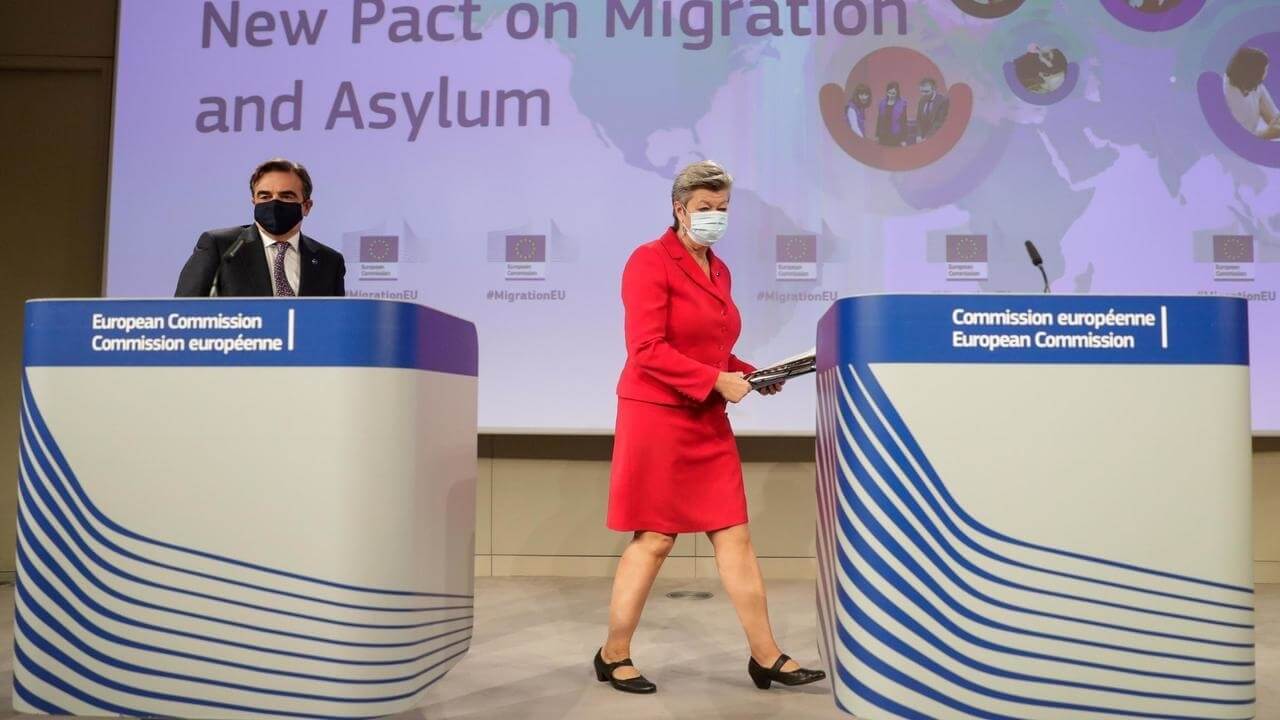The European Commission has decided to speed up its plan to present a policy aimed at bringing much-needed changes to the European Union’s migration and asylum policy. Under the new plan, there will be a “compulsory solidarity mechanism,” which intends to create a uniform process across the EU to provide more certainty to asylum-seekers, while ensuring that the burden of the migrant crisis is fairly divided across the continent. The Commission’s President, Ursula von der Leyen, said that the proposal is a “European solution … to restore citizens’ confidence.”
If implemented, this new “migration pact” will lead to health and security checks at entry points, expedited asylum procedures, and rapid return of rejected applicants. Additionally, the EU Border and Coast Guard Corps will be sent to provide operational support at all entry points.
The plan also proposes a “flexible option” for member states, such as Hungary and Poland, who do not wish to accept refugees at all. Such countries will have to contribute to the bloc’s migrant issue by providing “immediate operational support” or by “sponsoring” the return of migrants from other countries. The contribution of each member to the process will be dependent on the country’s GDP and population. Several experts see this as a victory for nationalist governments in Eastern Europe, who will no longer be pressurized to accept displaced people.
The new policy will replace the “Dublin Regulation,” which states that the responsibility of processing asylum applications lies with the country where the individual entered the bloc. This has often been criticized for being the primary cause of excessive burden on countries along the Mediterranean Sea like Greece, Italy, and Spain. The policy seeks to address this and now calls for a more integrated approach to the issue. According to the proposed amendments, asylum-seekers can be relocated to other member states too. This, according to von der Leyen, will strike the “right balance between solidarity and responsibility.”
The proposal was a consequence of the urgency created by the fire that ravaged the Moria camp in Greece, which led to more than 12,000 refugees being rendered homeless. According to von der Leyen, the fire served as “a stark reminder that we need to find sustainable solutions.” Further, the Commissioner for Home Affairs, Ylva Johansson, said, “I think it is obvious that Moria is the result, not only, but partly, of the lack of a common European asylum and migration policy.” The incident also sparked several protests, especially in Germany, wherein citizens demanded a more proactive approach by the EU to the migrant crisis. The camp had long been criticized for its horrific living conditions, including overcrowding, poor sanitation, and lack of soap and water taps. Though designed to only accommodate around 3,000 people, Moria was filled with an influx of migrants since 2016, sometimes reaching as high as 20,000 refugees, with numbers increasing, especially after Europe began introducing tighter border controls.
EU Proposes Changes to Asylum Process Adding Compulsory Solidarity Measure
The proposed plan calls for health and security checks at entry points, expedited asylum procedures, and rapid return of rejected applicants.
September 24, 2020

Margaritis Schinas, Vice President of the European Commission, and Ylva Johansson, the EU's Commissioner for Home Affairs. SOURCE: EN24
